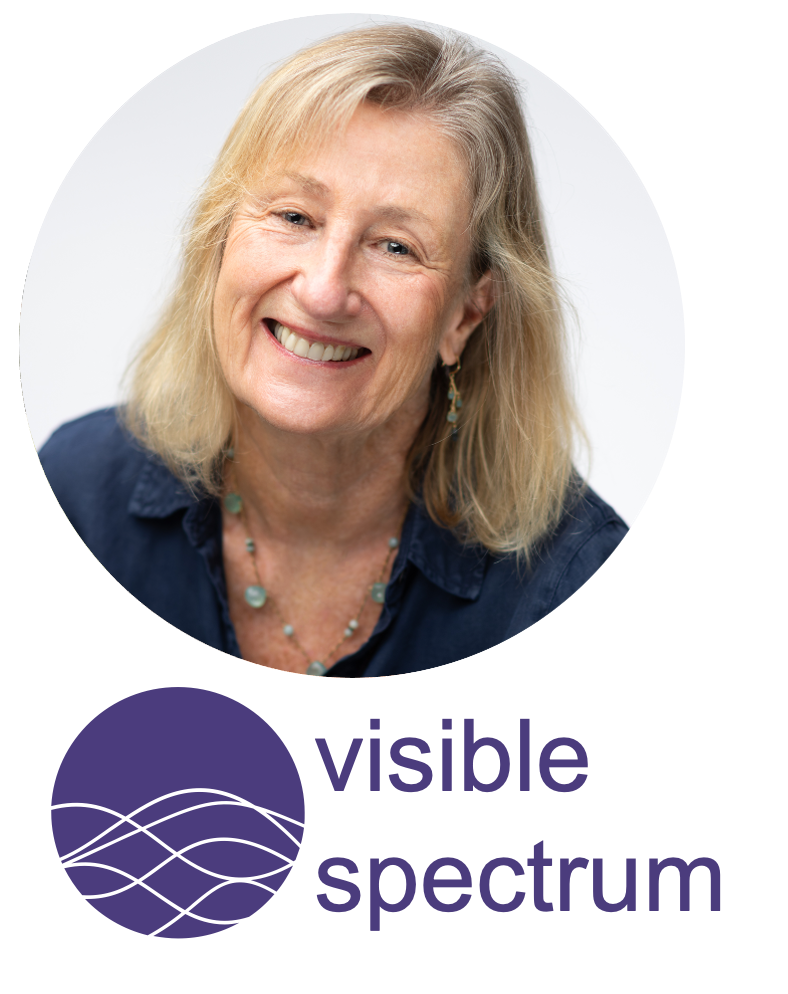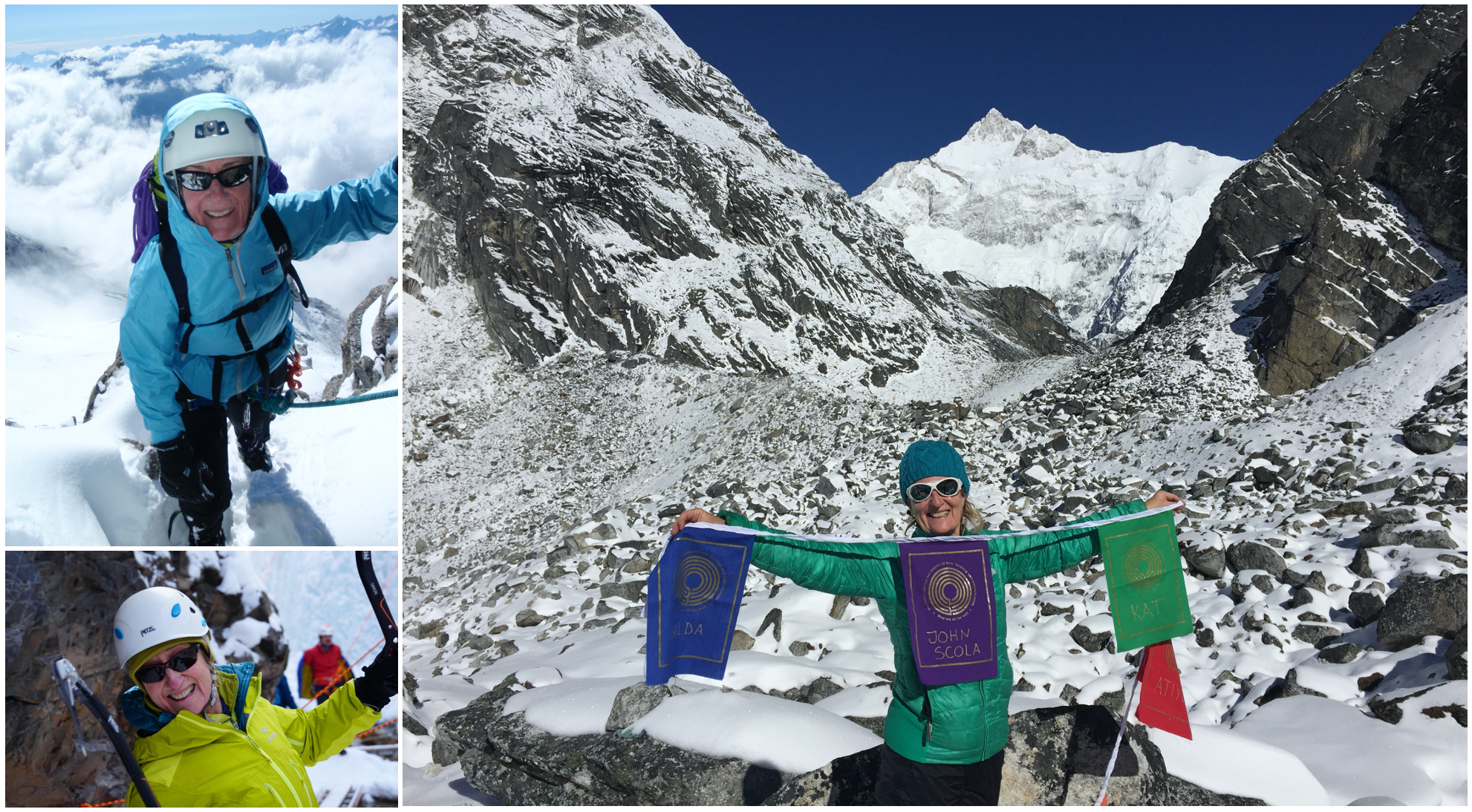 Visible Spectrum is a series to spotlight talented and dedicated women employees across the Lab. Ingrid Peterson is the physics division safety coordinator and the microsystems lab manager. She has a doctorate in physics from UC Santa Barbara, holds eight patents, and had a long career in the semiconductor industry before coming to Berkeley Lab. Her colleague notes: “She has a great can-do attitude and has been instrumental in helping the Dark Energy Spectroscopic Instrument (DESI) and Lux Zeplin (LZ) projects manage issues at their observatory on top of Kitt Peak in Arizona and at the bottom of the Homestake Mine in South Dakota.”
Visible Spectrum is a series to spotlight talented and dedicated women employees across the Lab. Ingrid Peterson is the physics division safety coordinator and the microsystems lab manager. She has a doctorate in physics from UC Santa Barbara, holds eight patents, and had a long career in the semiconductor industry before coming to Berkeley Lab. Her colleague notes: “She has a great can-do attitude and has been instrumental in helping the Dark Energy Spectroscopic Instrument (DESI) and Lux Zeplin (LZ) projects manage issues at their observatory on top of Kitt Peak in Arizona and at the bottom of the Homestake Mine in South Dakota.”
Outside of the Lab, Ingrid loves to climb vertical ice as an avid alpinist, an activity which involves upfront planning, real-time challenges, and continuous focus and hard work to maintain physical and mental fitness. She has rock, glacier, ice climbing technical skills and is a proficient skier, which are all needed to climb big mountains.
Ingrid also volunteers for several non-profit organizations and is passionate about supporting education in Africa and Himalayan countries and raising awareness about the impact of toxic chemicals on human health.
What inspired you to work at Berkeley Lab?
I was drawn to Berkeley Lab’s mission to solve the world’s most challenging problems and answer its most elusive questions through great science and technological discovery. This mission resonates with me and my desire to use what I have learned throughout my career in science and technology leadership, talents, creativity, and skills to contribute to solving complex challenging problems.
It is incredibly inspiring that half of the associate lab directors are accomplished women scientists. It is the first time in my career that I have had the pleasure of having role models. Additionally, it is infectious being surrounded by people who are passionate about their work.
What does your current scientific project or research entail?
At Berkeley Lab, I support scientists and projects using the tools from my background to partner with the science staff and solve different types of challenges. So far, I have had the opportunity to work on projects like Lux Zeplin (LZ), a next-generation dark matter detector installed a mile underground in an old gold mine in South Dakota and the Dark Energy Spectroscopic Instrument (DESI) at Kitt Peak in Arizona.
The approach to safety on these experiments is equivalent to launching a satellite into space. For example, the LZ detector consists of 10 tons of liquified Xenon a mile underground in a former gold mine. In other words, nothing can go wrong. This requires understanding the system and its vulnerabilities to minimize risk, which is accomplished by working closely with the scientists and engineering teams as well as the staff executing the work onsite.
What have you been most proud of in your work?
I am most proud of applying my interests, determination and focus to make things happen. Prior to joining the Lab, I had a successful career in the semiconductor industry where I led engineering teams developing optical hardware for metrology and inspection of semiconductor devices. Early in my career, I also held academic positions in the field of condensed matter physics.
I’ve led complex projects and teams to successfully bring products to market internationally. As a physicist, and safety officer, I now support projects focused on answering some of the most fundamental questions in cosmology, fundamental physics, astrophysics and astronomy which is very exciting.
I find it very satisfying to use the skills I honed to support the scientists at Berkeley Lab be successful. In addition, I have been honored to be a project reviewer on some of the most important projects in cosmology, astrophysics and astronomy.
Do you have tips you’d recommend for someone looking to enter and/or succeed in your field of work?
I have three pieces of advice: follow your passion, set a vision for your future, and be persistent towards achieving your goals.
How can our community engage more women, girls, and other underrepresented groups in STEM?
Having great mentors throughout my career was invaluable. So I would highly recommend developing and participating in a program to partner women, girls and underrepresented groups in STEM with mentors from the science community.
